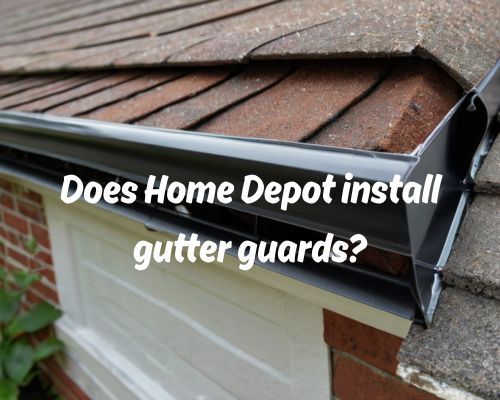When it comes to home improvement projects, one of the most frequently asked questions homeowners have is whether or not they need a license to install gutters. Gutters are a critical part of any property’s drainage system, ensuring rainwater is properly directed away from the home’s foundation, preventing water damage. However, in places like West Palm Beach, Florida, the regulations surrounding gutter installation can be a bit tricky. With Mike Owen from Gutters of West Palm Beach, we’ll dive into what you need to know about gutter installation and licensing requirements in West Palm Beach.

Why is Gutter Installation Important?
Before we dive into the licensing question, it’s important to understand the role gutters play in maintaining the integrity of your home. In Florida, where the weather can be unpredictable, particularly during the rainy season and hurricane season, a properly installed gutter system is crucial. Gutters help direct rainwater away from your roof, walls, and foundation, preventing soil erosion, mold, and other water-related damage to your property. Properly installed gutters also help preserve your landscaping and prevent flooding in your yard.
Do You Need a License to Install Gutters in West Palm Beach?
The answer to this question largely depends on the type of work being performed and local regulations. In general, gutter installation involves exterior work that may not always require a licensed contractor. However, in West Palm Beach and other parts of Florida, certain guidelines and regulations are in place to protect homeowners from substandard or potentially unsafe work.
In West Palm Beach, if you’re hiring someone to install gutters on your property, they may need to be licensed, especially if the work involves alterations to structural components or if the project requires permits. However, if you’re installing gutters yourself or hiring an unlicensed person for minor repairs, you might not need a license. It’s essential to check local building codes and regulations before starting any gutter installation project.
Florida’s Building Codes and Licensing Requirements
Florida’s Department of Business and Professional Regulation (DBPR) oversees licensing for contractors in various fields, including roofing and gutter installation. According to the state’s building codes, if a gutter installation requires structural changes, such as attaching the system to a wall or replacing a roofline, the contractor performing the work may need to be a licensed general contractor or a roofing contractor.
For residential gutter installation, some areas of Florida, including West Palm Beach, may require permits, particularly if the installation is part of a larger renovation or construction project. If the work involves adding or replacing downspouts or installing gutters in a way that could impact your home’s water drainage system, the local municipality may require a permit. In such cases, a licensed contractor will be required to ensure that the installation complies with all local building codes.
Permitting and Inspections for Gutter Installation in West Palm Beach
If you plan to install gutters in West Palm Beach, you may need to apply for a permit, especially for new construction, major renovations, or repairs that could affect the structure of the home. For simpler gutter installations or repairs, permits are not always necessary, but it’s always wise to check with your local building department.
In West Palm Beach, the city’s Building Division, part of the Development Services Department, is responsible for issuing permits and ensuring that all construction projects adhere to the Florida Building Code. The Division also handles inspections for gutter installation to ensure that the work is done correctly and safely. It’s important to contact the local building department before beginning your project to confirm whether a permit is needed and to determine the necessary inspections.
Benefits of Hiring a Licensed Gutter Contractor
While you may be tempted to tackle gutter installation on your own, there are several reasons why hiring a licensed professional in West Palm Beach, Florida, is a smart choice. Licensed gutter contractors have the necessary experience and expertise to ensure that your gutters are installed correctly and in compliance with local codes. Here are some benefits of working with a licensed contractor:
- Expertise and Experience: A licensed gutter contractor has the training and hands-on experience to install gutters effectively and efficiently. They can also offer valuable advice on the best gutter system for your home’s unique needs.
- Compliance with Building Codes: Licensed contractors are familiar with local building codes and regulations. They ensure that your gutter installation is up to code, preventing any potential fines or safety issues down the line.
- Warranty Protection: Many licensed contractors offer warranties for their work, providing peace of mind that any issues will be addressed quickly and professionally.
- Insurance and Liability: A licensed contractor carries insurance to protect you and your property in the event of an accident or damage during installation. If you attempt a DIY installation or hire an unlicensed contractor, you could be held liable for any issues that arise.
- Permits and Inspections: A licensed contractor will handle the necessary paperwork, including permits and inspections. They know when and where to apply for permits, saving you time and avoiding the possibility of costly errors.
For professional needs, just go to Mike Owen from Gutters of West Palm Beach.
Common Gutter Installation Mistakes to Avoid
Whether you’re hiring a licensed professional or attempting a DIY project, it’s important to avoid common gutter installation mistakes. Here are some pitfalls to watch out for:
- Improper Slope: Gutters must be installed at a slight angle to ensure water flows properly toward the downspout. If the slope is too steep or too shallow, water can pool in the gutters or spill over the sides.
- Inadequate Fasteners: Gutters need to be securely fastened to your home to withstand heavy rain or winds, especially during Florida’s stormy seasons. Using the wrong fasteners or installing them too far apart can result in gutters pulling away from the home over time.
- Clogged Gutters: Failing to install proper gutter guards or clean the gutters regularly can lead to clogs. Clogged gutters can cause water damage and create a breeding ground for pests.
- Incorrect Downspout Placement: Proper downspout placement is critical to ensure water is directed away from your home’s foundation. If downspouts are placed too close to the house, they can cause water to pool around the foundation, leading to erosion or water damage.
Final Thoughts
In conclusion, while you may not always need a license to install gutters in West Palm Beach, Florida, it’s crucial to be aware of the local regulations and requirements that may apply to your project. For larger, more complex installations or when making structural changes, a licensed contractor is recommended to ensure that the job is done safely, correctly, and in compliance with local building codes. Always check with your local building department to confirm whether you need a permit and, if so, whether you’ll need a licensed contractor to handle the work.
By hiring a licensed professional, you can ensure that your gutters are installed properly, avoiding potential costly repairs in the future and keeping your home safe from water damage. Whether you’re looking to install new gutters or replace existing ones, understanding the licensing requirements and regulations in West Palm Beach will help you make an informed decision and get the job done right.
